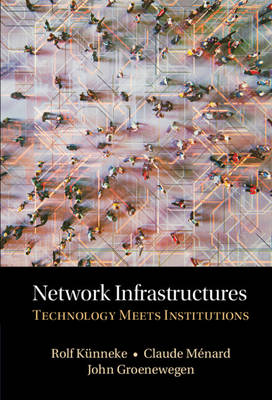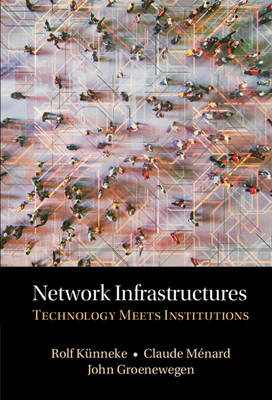
Je cadeautjes zeker op tijd in huis hebben voor de feestdagen? Kom langs in onze winkels en vind het perfecte geschenk!
- Afhalen na 1 uur in een winkel met voorraad
- Gratis thuislevering in België vanaf € 30
- Ruim aanbod met 7 miljoen producten
Je cadeautjes zeker op tijd in huis hebben voor de feestdagen? Kom langs in onze winkels en vind het perfecte geschenk!
- Afhalen na 1 uur in een winkel met voorraad
- Gratis thuislevering in België vanaf € 30
- Ruim aanbod met 7 miljoen producten
Zoeken
Network Infrastructures
Technology meets Institutions
Rolf Kunneke, Claude Ménard, John Groenewegen
Hardcover | Engels
€ 140,95
+ 281 punten
Omschrijving
Infrastructures are complex networks dominated by tight interdependencies between technologies and institutions. These networks supply services crucial to modern societies, services that can be provided only if several critical functions are fulfilled. This book proposes a theoretical framework with a set of concepts to analyse rigorously how these critical functions require coordination within the technological dimension as well as within the institutional dimension. It also shows how fundamental the alignment between these two dimensions is. It argues that this alignment operates along different layers characterized successively by the structure, governance and transactions that connect technologies and institutions. These issues of coordination and alignment, at the core of the book, are substantiated through in-depth case studies of networks from the energy, water and wastewater, and transportation sectors.
Specificaties
Betrokkenen
- Auteur(s):
- Uitgeverij:
Inhoud
- Aantal bladzijden:
- 278
- Taal:
- Engels
Eigenschappen
- Productcode (EAN):
- 9781108832694
- Verschijningsdatum:
- 9/12/2021
- Uitvoering:
- Hardcover
- Formaat:
- Genaaid
- Afmetingen:
- 152 mm x 229 mm
- Gewicht:
- 539 g

Alleen bij Standaard Boekhandel
+ 281 punten op je klantenkaart van Standaard Boekhandel
Beoordelingen
We publiceren alleen reviews die voldoen aan de voorwaarden voor reviews. Bekijk onze voorwaarden voor reviews.









